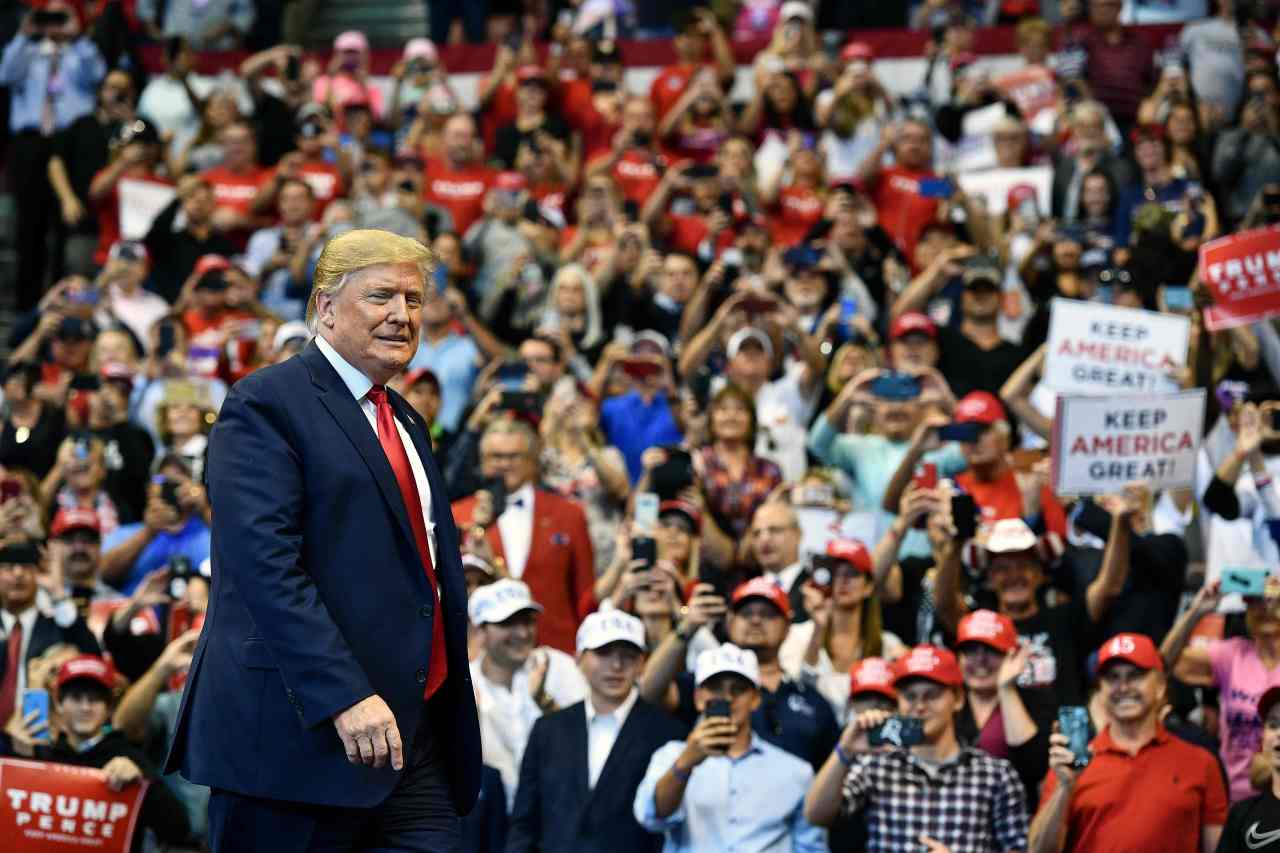Pentagon budget estimate suggests why Trump seeks $5b from S. Korea
By YonhapPublished : Nov. 28, 2019 - 09:08
WASHINGTON -- The US Defense Department has estimated it will cost nearly $4.5 billion to station troops in South Korea in fiscal year 2020, suggesting why President Donald Trump reportedly seeks $5 billion from Seoul next year.
According to the Pentagon's budget estimate drawn up in March, the total payment toward military personnel, operations, maintenance and family housing in South Korea amounts to $4.46 billion in the fiscal year ending on Sept. 30, 2020.
In fiscal year 2019, the number was $4.43 billion, while in 2018, it was $4.32 billion.
Trump may have had those figures in mind when he balked at the scope of the US defense commitment to South Korea in an interview in January with author and former presidential adviser Doug Wead.

In his new book, "Inside Trump's White House: The Real Story of His Presidency," published Tuesday, Wead said the president asked him if he knew how much the US was spending to "defend" South Korea.
"Four and half billion dollars a year," Trump told Wead.
"Figure that one out?"
The comment serves as a reminder that Trump believes South Korea should pay more for the stationing of 28,500 US troops in the country, an issue that has emerged as a key challenge facing the decades-old alliance.
During his bombastic presidential campaign, Trump labeled South Korea as a "free rider" on America's security network. He even called the Asian ally a "major abuser," according to a recently published memoir by Guy Snodgrass, former chief speechwriter for former US Defense Secretary James Mattis.
His perceptions have prompted criticism that Trump cares more about pecuniary advantages in the US' alliance management than the strategic benefits of promoting shared values with the allies that have undergirded America's post-war global leadership.
Observers argue that South Korea has already shown its commitments to the evolving alliance through various contributions -- or sacrifices -- including its troop dispatch to the Vietnam War during the Cold War and America's war on terrorism in the 2000s.
When it comes to financial contributions for the US Forces Korea, Seoul has been providing indirect yet significant support such as its provision of more than 3,000 Army soldiers as augmentation troops to the US Army and exemptions or cuts in utility fees and costs for the US military using ports, airports, roads and railways.
But the Trump administration has reportedly demanded a more than fivefold increase to $5 billion in Seoul's contributions to the upkeep of USFK in negotiations over the cost-sharing deal, or Special Measures Agreement.
Washington's demand has triggered concerns from within the US as well.
In a recent interview with the Voice of America, John Hamre, president of the Center for Strategic and International Studies, said that US forces in Korea are not "mercenaries," while stressing the importance of protecting an ally that shares common values.
This year's SMA, set to expire at the end of this year, does not require Seoul to pay toward the categories included in the Pentagon's budget estimate.
The SMA requires Seoul to pay only for Korean civilians hired by the USFK, the construction of military facilities to maintain the allies' readiness and other forms of support.
Meanwhile, reports have said the US has asked that under the new SMA South Korea also cover expenditures related to supporting American troops' families and conducting combined military exercises. (Yonhap)








![[Graphic News] More Koreans say they plan long-distance trips this year](http://res.heraldm.com/phpwas/restmb_idxmake.php?idx=644&simg=/content/image/2024/04/17/20240417050828_0.gif&u=)
![[KH Explains] Hyundai's full hybrid edge to pay off amid slow transition to pure EVs](http://res.heraldm.com/phpwas/restmb_idxmake.php?idx=644&simg=/content/image/2024/04/18/20240418050645_0.jpg&u=20240419100350)






![[From the Scene] Monks, Buddhists hail return of remains of Buddhas](http://res.heraldm.com/phpwas/restmb_idxmake.php?idx=652&simg=/content/image/2024/04/19/20240419050617_0.jpg&u=20240419175937)

![[KH Explains] Hyundai's full hybrid edge to pay off amid slow transition to pure EVs](http://res.heraldm.com/phpwas/restmb_idxmake.php?idx=652&simg=/content/image/2024/04/18/20240418050645_0.jpg&u=20240419100350)

![[Today’s K-pop] Illit drops debut single remix](http://res.heraldm.com/phpwas/restmb_idxmake.php?idx=642&simg=/content/image/2024/04/19/20240419050612_0.jpg&u=)